MercoPress. South Atlantic News Agency
Economy
-
Thursday, August 25th 2011 - 00:34 UTC
Uruguay expects smallest wool clip in over a hundred years: 32 million kilos
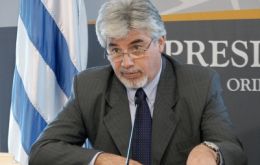
Uruguay is facing its smallest clip in over a hundred years and the 2011/2012 season’s wool production is estimated to be limited to 32 million kilos according to Joaquin Martinicorena, president of the Uruguay’s Wool Secretariat, SUL.
-
Thursday, August 25th 2011 - 00:09 UTC
Uruguay’s textile industry could have to import 20 million kilos of wool
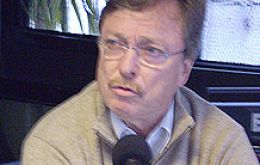
Uruguay’s textile industry is short of wool and could be forced to import up to 20 million kilos, revealed Uruguayan Wool Secretariat (SUL) CEO Gabriel Capurro during the opening of an ovine industry seminar, organized by the country’s Corriedale breeders association.
-
Thursday, August 25th 2011 - 00:00 UTC
Brazilian government comes to the rescue of giant meat corporation JBS SA

Brazilian meat giant JBS S.A. has announced that BNDES (Brazilian Development Bank) converted a large amount of JBS debt into equity, boosting the bank’s shareholdings in the company to 30.4% from 17% previously.
-
Wednesday, August 24th 2011 - 23:53 UTC
Risk of Euro breaking up is holding back US recovery, says Greenspan

The risk that Europe's single Euro currency could break up is the main factor holding back the US economy, former Federal Reserve Chairman Alan Greenspan said, though he stopped short of predicting a new recession in the US.
-
Wednesday, August 24th 2011 - 23:43 UTC
Japan's turn to have its rating cut blaming debt and political problems

Moody's Investors Service cut this week its rating on Japan's government debt by one notch to Aa3, blaming a build-up of debt since the 2009 global recession and revolving-door political leadership that has hampered effective economic strategies.
-
Wednesday, August 24th 2011 - 07:02 UTC
Mantega admits global crisis in having an impact: lowers Brazil growth to 4%
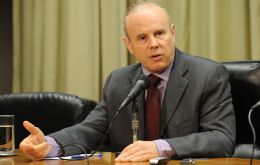
Brazilian Finance minister Guido Mantega admitted before the Senate that the global financial crisis is already having an impact in the local economy and this will be reflected in a lower GDP for the twelve months.
-
Wednesday, August 24th 2011 - 07:00 UTC
Record DFI in Brazil narrows significantly current account deficit
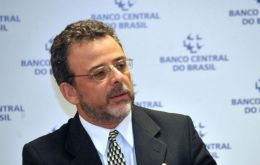
Brazil's 12-month current account deficit narrowed in July on rising revenue from exports and strong foreign direct investment. The 12-month deficit declined to 47.9 billion dollars or 2.1%, of GDP, from 49 billion, or 2.2% of GDP in June, the central bank said Tuesday.
-
Wednesday, August 24th 2011 - 06:55 UTC
Government spending and jobs boost President Cristina Fernandez re-election
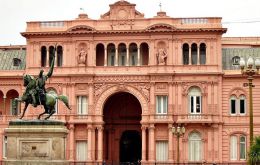
With Argentina’s presidential election less than two months away official data is showing why President Cristina Fernandez de Kirchner is poised to make effective her re-election bid in October.
-
Wednesday, August 24th 2011 - 06:47 UTC
World markets higher on expectations of Bernanke speech Thursday

US stocks shot 3% higher on Tuesday on speculation Federal Reserve Chairman Ben Bernanke this week could signal new help for the US economy, giving investors hope a four-week rout was nearing an end.
-
Wednesday, August 24th 2011 - 06:40 UTC
Argentine trade surplus shrinks 22% in July as imports outpace exports
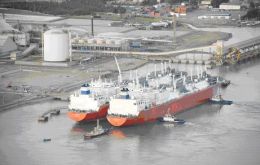
Argentina's trade surplus shrank 22% in July from a year earlier to 672 million dollars as import growth continued to outpace exports, the government said on Tuesday. The trade surplus totalled 861 million dollars in July 2010.
